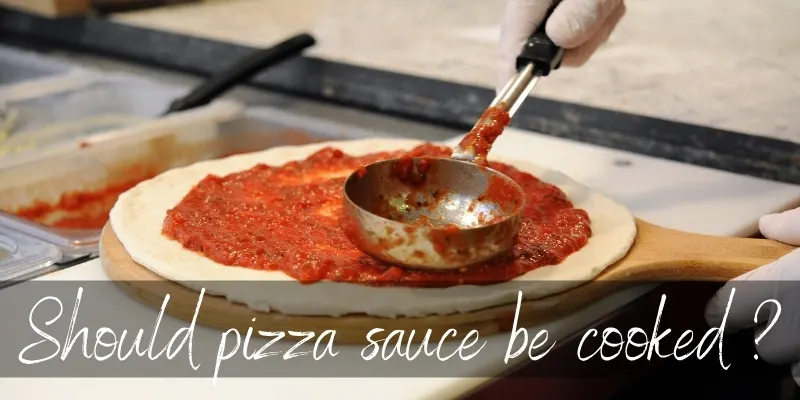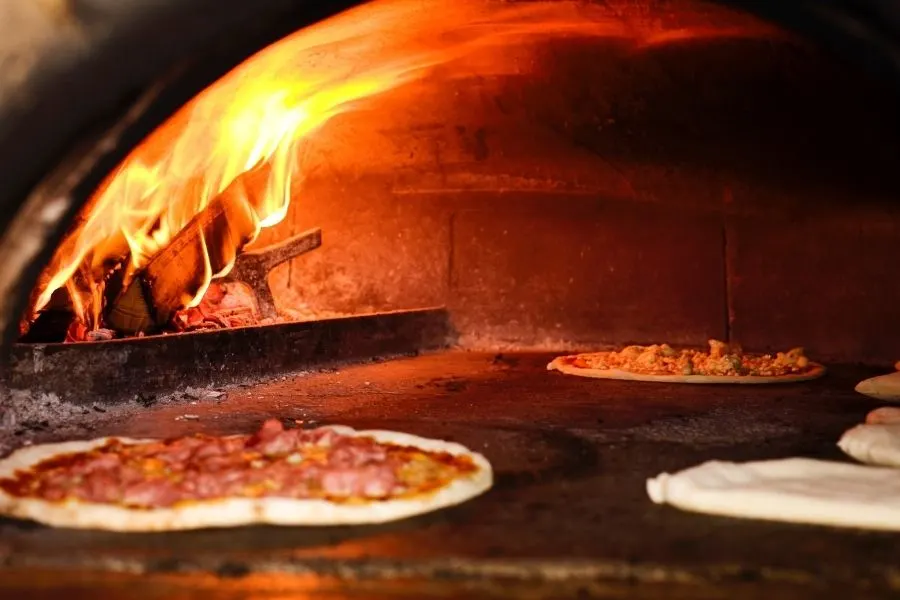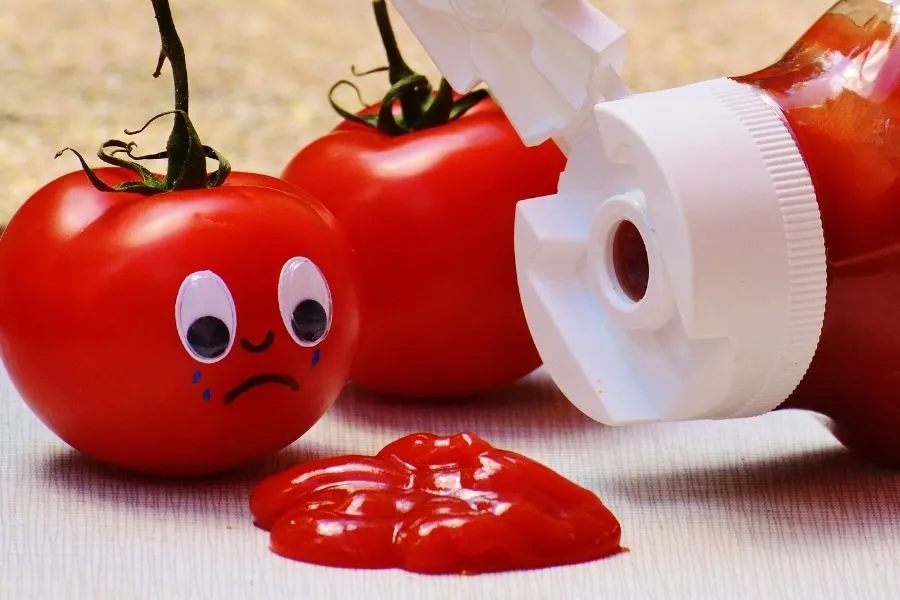Fallen in love with pizza and looking to make your own at home ? That’s actually a very common situation, and we’re glad you’re taking matters into your own hands. However you’ve likely noticed some difference between your home made pizza and the delivery you get.
Is it the sauce maybe ? Do you have to cook it before, or use it raw ? Any special seasonings you’re missing ? Let’s take a look.

Should pizza sauce be cooked ?
Yes, you should cook your pizza sauce for at least half an hour to make sure the end result is exactly the way you like it. Raw pizza sauce is not as good as cooked, since it has a sour, raw note.
Once you cook the tomatoes they develop their flavor better, and mix with the other ingredients. It’s the exact same logic as cooking your bolognese sauce for a couple of hours if you really want it to be good.
You’ll find all kinds of opinions on the internet, and plenty of them will guide you to sue raw pizza sauce. Here’s why we think cooked pizza sauce is the best, so you can decide for yourself.
Cooked pizza sauce has low acidity, no sourness
When you open the can of roast tomatoes or tomato sauce or whatever combination you’re using, it’s cold and likely raw. Well, as raw as a previously roasted or simmered tomato can be.
The problem is the acidity level in tomatoes, and it comes with a sour note. Personally we kind of hate tomato sauce as it can cause some serious heartburn for us. But we’ve noticed that once it’s simmered with the rest of the ingredients for at least half an hour, it loses its punch.
Read also: How Long Does Homemade Tomato Sauce Last ?
If you’re patient you can simmer for an entire hour, and you get an even better sauce. You may be thinking you’re cooking the sauce twice if you do this; once when simmering and again when baking pizza.
And you’re right, and this leads to a perfectly good pizza sauce. It really ties into our next point.
Your oven cannot get hot enough for true pizza
True pizza needs a screaming hot oven. How hot ? About 800 F/426 C. Does your home oven go that high ? Neither does ours. At best you can simulate that temp with a grill that still has the flame going, and even then it’s not enough.

How does this impact your pizza ? And why does it matter for the sauce ? A pizza needs to cook in about 10 minutes, as this creates that crust and crisps it up nicely without getting soggy white the top ingredients cook. It also means the pizza sauce is only lightly cooked, since it needs to be simmered to really take that raw, sour edge off.
In a normal home oven this does not happen fast enough. Your pizza cooks in about 35 minutes, give or take 5 for the extra toppings and maybe ladling on too much sauce (we’ve been there). The crust does not end up bubbly and crispy most of the time.
So your pizza sauce, if raw, does end up cooking when you subject it to a home oven. But it needs more than that. You may be wondering why, since it cooks for 35(ish) minutes and we said to simmer it for 30. Yes, but after you simmer it for 30 minutes you also cook it a second time and really take out all that acidity.
Plus, those 35 minutes are not full of cooking. Nothing you ever put in the oven start cooking right away, it needs almost 10 minutes to come to temperature. Think of baking, it takes a while for the dough to start rising.
So in short, a home oven will not cook your raw sauce enough. Which is probably why it comes out wrong and you reach for the mayo and garlic sauce.
What makes a good pizza sauce ?
A good pizza sauce should provide some moisture so the product is not dry, and plenty of flavor that you don’t need extra sauce. This can be easily adjusted from the seasonings and herbs you sue in your pizza sauce.
It should also not be too runny. A runny pizza sauce will only make the dough cook much slower, possibly leading to a soggy bottom pizza. This can also happen if the oven is not hot enough.
Is tomato sauce the same as pizza sauce ?
And finally, a good pizza sauce is not just tomato sauce. It has several ingredients that are really important to create a perfect pizza, like:
- finely chopped onions, that need to fry and then simmer so they disintegrate into the sauce
- a couple of garlic cloves, they won’t be in your face but you know when they’re missing
- fresh basil, no ifs or buts; dried basil is really not that good
- good quality tomatoes, sweet and meaty
- a dash of olive oil, too much can turn out bitter
- salt and pepper
And that’s pretty much it. Notice we’ve said nothing of sugar. That’s right, if you bother to cook it down, it will lose that sour edge that calls for a tablespoon of sugar.
Simmer all of these together for at least half an hour and you’ll get yourself some damn good pizza. Also do remember to add some salt and flavor to the dough itself. There’s only so much you can do with a poor dough.
Do you need to heat pizza sauce ?
No, pizza sauce can be ladled onto the pizza cold since it will heat up when it bakes anyway. If you’re using pre-made pizza sauce use it as-is.
If you’re making your own at home and it’s still hot in the pot, you can still put it on the pizza hot. It doesn’t really matter what temperature the sauce is, but there’s no point in reheating a cold sauce. Or waiting for a hot sauce to cool down.
Oh, and if you’re making pizza fairly often you can simply cook a large batch, then can it to use for later. Or, portion it in small containers and freeze it for later, whichever works best for you.
How do you thicken pizza sauce ?
Your pizza sauce can be thickened in two ways. The simplest and most mess-free way is to use some very fine flour or cornstarch, just make sore there are no lumps. If you’ve never done this before, simply put the flour in a cup or glass, and add in about a tablespoon of hot sauce. Stir until the flour mixes with the sauce completely. Add more sauce if you need to. Break up any clumps with the back of your spoon.
Once it’s all mixed together, put in a bit of thickener, stir the pot let it simmer a little. If you need to thicken it more, add the rest.
As for how much flour or cornstarch to use, we can’t say. It depends on how much sauce you’re making and how thick you want it. Usually a tablespoon of flour or cornstarch is more than enough for 17 oz of sauce. Don’t add it all ! These things really don’t need to be very thick.
And the second way to thicken pizza sauce is to strain it. You don’t have to strain it completely, you can still mix in some of the liquid. Note that this produces the chunkiest version of pizza sauce. So if you like it that way, go for it.
Read Also: Why Is Pizza Fast Food ?
Can you use ketchup as pizza sauce ?
We don’t recommend ketchup as a pizza sauce because the tomato content is very low, and it’s too sweet to be used as a base. Aside from this, ketchup is a thin consistency, especially when compared to regular pizza sauce.

Not even in case of an emergency ? No, we really don’t recommend ketchup on pizza. You can try it for an experiment, but unless it’s a damn good chunky ketchup you’re mostly ruining the other ingredients.
And that’s about it. We know the raw vs cooked pizza sauce debate is going to be thing for years to come, because each has their own fan base. We’re sticking with cooked pizza sauce since it’s actually better tasting and less sour than raw pizza. When you add all your ingredients and seasonings, you need to give them time to mix thoroughly. Simmering speeds that up.

